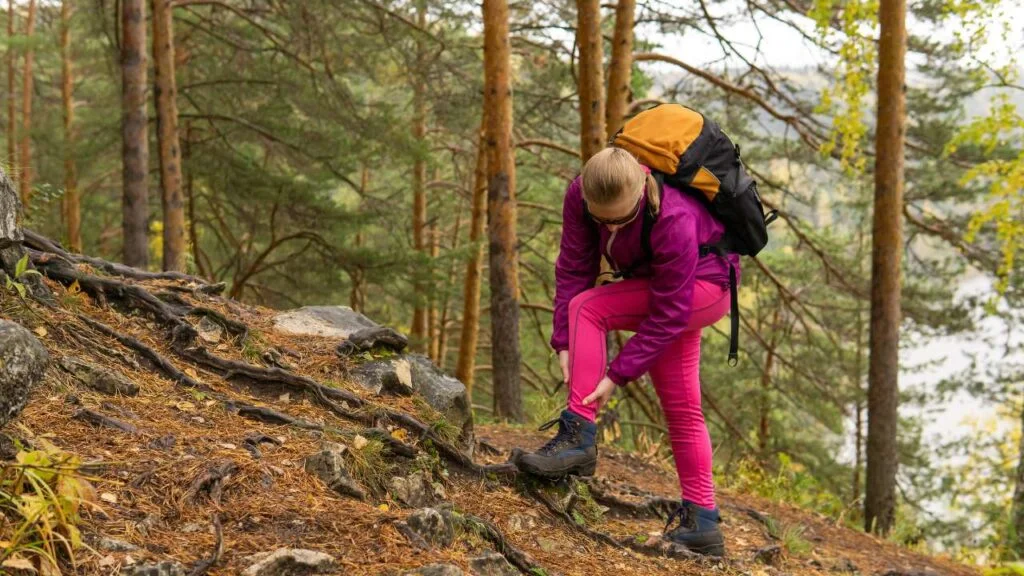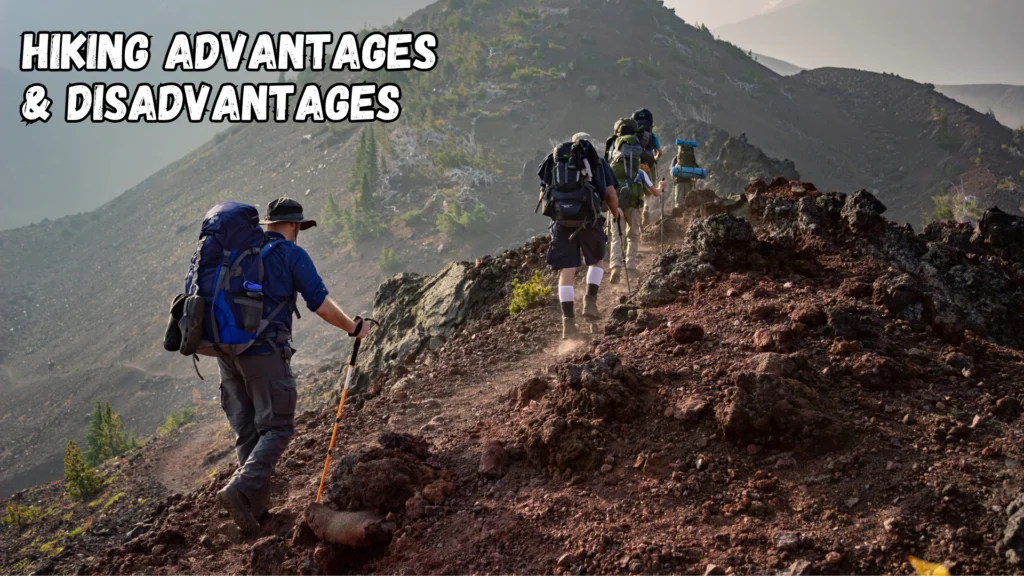Top 12 Beginner Backpacking Blunders: Avoid these common mistakes for a successful adventure. Backpacking is an exhilarating way to explore the great outdoors, but it’s important to be prepared and knowledgeable to avoid any potential pitfalls.
We will discuss twelve common blunders that beginners often make and provide helpful tips to ensure a smooth and enjoyable backpacking experience. Whether it’s overpacking, not planning a suitable route, or neglecting to pack important gear, we’ve got you covered with valuable information that will help you become a savvy backpacker.
So, let’s dive in and learn how to make the most of your backpacking adventure while avoiding these common blunders.
1. Choosing The Wrong Backpack
When heading out for a backpacking adventure, selecting the right backpack is crucial. Choosing the wrong backpack can lead to discomfort, pain, and even injury. To avoid common blunders, consider these essential tips when picking the perfect pack.
Size Matters
Ensure the backpack’s size matches your torso length and hip size for a comfortable fit. Choosing a pack too large or small can cause strain and discomfort.
Features To Look For
Opt for a backpack with adjustable straps and padded hip belts for proper weight distribution. Look for multiple compartments to organize gear efficiently.

Credit: manitousprings.org
2. Overpacking And Underpacking
When backpacking, finding the right balance between overpacking and underpacking is crucial.
Finding The Right Balance
Striking the right balance means packing only what you truly need for your trip.
Essential Items To Pack
- Backpack: Choose a comfortable, lightweight pack that fits properly.
- Shelter: Essential for protection from the elements.
- Clothing: Pack versatile layers suitable for different weather conditions.
- Food and Water: Carry enough supplies for your journey.
- Navigation Tools: Maps, compass, or GPS to stay on track.
- First Aid Kit: Be prepared for any minor injuries or illnesses.
- Hygiene Essentials: Keep clean and prevent infections on the trail.
- Lighting: Headlamp or flashlight for navigating in the dark.
- Multi-tool: Handy for various tasks and repairs.
- Emergency Supplies: Whistle, signaling mirror, and emergency blanket.
- Proper Footwear: Choose sturdy, comfortable hiking boots or shoes.
- Correctly packed gear: organize items efficiently in your backpack.
3. Ignoring Footwear Considerations
When planning a backpacking trip, one of the most important aspects that beginners often overlook is the consideration of proper footwear. Ignoring the importance of suitable footwear can lead to a range of issues, including discomfort, blisters, and even injuries. Hiking with ill-fitting or inappropriate shoes can quickly turn a dream adventure into a painful nightmare.
Importance Of Proper Footwear
Proper footwear is essential for backpacking as it provides stability, support, and protection for your feet. Choosing the right hiking boots or shoes can prevent foot fatigue and reduce the risk of injuries during long treks. Additionally, proper footwear can enhance your overall comfort and enjoyment on the trails, allowing you to focus on the stunning scenery rather than the discomfort in your feet.
Breaking In New Shoes
Breaking in new shoes before hitting the trails is crucial. Wearing them around the house or on short walks can help to identify any areas of discomfort and allow the shoes to mold to the shape of your feet, reducing the likelihood of blisters and sore spots during your backpacking adventure. Skipping this step can result in painful consequences, making it important to address this blunder well in advance of your trip.
4. Not Testing Gear Beforehand
One of the most common beginner backpacking mistakes is not testing gear before embarking on the trip. While it may seem like a minor oversight, this blunder can have significant consequences. Testing your equipment ensures that everything functions properly and gives you the opportunity to address any issues before you hit the trail.
Trial Runs
Before you head out on your backpacking adventure, it’s essential to conduct trial runs with your gear. This allows you to become familiar with how everything works and identify any adjustments or modifications you may need to make. Setting up your tent, adjusting straps on your backpack, and practicing using your stove are all important tasks to accomplish during trial runs.
Checking Equipment Functionality
Equipment functionality is crucial when it comes to backpacking. Nothing is worse than reaching your campsite only to discover that your tent’s zipper is broken or your stove won’t ignite. To avoid such scenarios, ensure that you thoroughly check each piece of equipment for functionality before your trip.
Here are some key items to check:
- Tent: Set up your tent in your backyard or living room, making sure all zippers function smoothly and the rainfly is secure. Check the stakes, guylines, and poles for any signs of damage or wear.
- Sleeping bag: Test out your sleeping bag to ensure it provides adequate warmth and comfort. Check for any tears, loose threads, or malfunctioning zippers.
- Backpack: Load your backpack with weight and walk around to see how it feels on your shoulders and hips. Adjust the straps for proper fit and stability. Check the zippers, pockets, and compression straps for any issues.
- Stove: Set up and ignite your stove to ensure it works properly. Check the fuel canister connection, valve, and flame control.
- Water filter: Test your water filter to ensure it can effectively purify water. Check the filter’s flow rate and ensure all connections are leak-free.
By conducting thorough trials and checking the functionality of your gear, you can avoid unpleasant surprises and ensure a smooth backpacking experience. Spending the time to test your equipment beforehand will give you peace of mind and allow you to fully enjoy the beauty of the great outdoors.
5. Lack Of Navigation Skills
When embarking on a backpacking adventure, one of the most common mistakes that beginners make is having a lack of navigation skills. Whether hiking through dense forests or scaling steep mountains, knowing how to navigate properly is crucial for a safe and successful trip. In this article, we will delve into two key aspects of navigation skills: understanding maps and compasses, as well as utilizing GPS devices. By mastering these skills, you can avoid common blunders and explore the wilderness with confidence.
Understanding Maps And Compasses
Maps and compasses are essential tools for any backpacker’s toolkit. They not only provide a visual representation of the terrain and surroundings but also help navigate through unfamiliar trails. It is vital to understand how to read a map and utilize a compass effectively to avoid getting lost.
When it comes to maps, start by familiarizing yourself with the legend, which explains the symbols and features on the map. Make sure to note the scale and contour lines, as they indicate the elevation changes and the steepness of the terrain. By understanding these elements, you can plan your route intelligently and gauge the difficulty of the trail.
Next, learn how to orient the map using a compass. Orienting the map means aligning it with the real world’s features, such as mountains or landmarks. By doing so, you can determine your current location accurately and identify the direction you need to travel. Remember, the top of the map should always point towards the north.
Now, let’s talk about compasses. A compass consists of a magnetic needle that aligns itself with the Earth’s magnetic field, pointing towards the magnetic north. To effectively use a compass, hold it level and keep it away from any metallic objects that could interfere with its accuracy. Rotate yourself until the needle aligns with the orienting arrow, ensuring that you are facing the right direction.
Utilizing Gps Devices
In today’s digital era, GPS devices have become an increasingly popular tool for backpackers. These devices use satellite signals to determine your location accurately. While they can be convenient, it’s important to understand their limitations and use them properly.
When using a GPS device, make sure to have a clear view of the sky to improve satellite reception. Learn how to navigate through the device’s menus and understand the different features it offers, such as the ability to mark waypoints or track your progress. Always carry extra batteries or a portable charger to ensure your device doesn’t run out of power during your adventures.
However, keep in mind that GPS devices are not infallible. Factors like poor satellite reception or drained batteries can render them useless. Therefore, it is crucial to have a backup plan, such as carrying a physical map and compass, to ensure you can navigate even in unexpected situations.
In conclusion, lacking navigation skills can lead to a host of problems during a backpacking trip. By understanding how to use maps and compasses effectively, as well as utilizing GPS devices wisely, you can avoid getting lost, stay safe, and fully enjoy the wonders of the wilderness.

Credit: www.pinterest.com
6. Inadequate Meal Planning
Proper meal planning is crucial for a successful backpacking trip. Inadequate meal planning can lead to exhaustion, malnutrition, and overall dissatisfaction. It’s essential to consider calorie requirements and meal variety and preparation to ensure a well-rounded and nourishing menu.
Calorie Requirements
Backpacking requires a significant amount of energy, making it essential to meet caloric needs. Proper calorie intake helps maintain stamina and endurance throughout the journey. Consider creating a menu that provides sufficient calories to sustain energy levels and support physical exertion.
Meal Variety And Preparation
Variety is essential to prevent meal fatigue and ensure that essential nutrients are consumed. Incorporate a mix of proteins, carbohydrates, and healthy fats into meals. Additionally, focus on convenient and lightweight meal preparation to save time and streamline the cooking process while on the trail.
7. Neglecting First Aid Basics
Beginner backpackers often overlook the importance of first aid basics when venturing into the wilderness. Neglecting first aid can have severe consequences in case of injuries or emergencies. It’s essential to be prepared with wilderness first aid basics and training..
Essential First Aid Supplies
First aid supplies are crucial for handling injuries on backpacking trips. Include essentials like adhesive bandages, antiseptic wipes, gauze pads, and adhesive tape in your backpack. Packing a compact first aid kit will ensure you can quickly address minor injuries on the trail.
Basic First Aid Training
Obtaining basic first aid training is vital for every backpacker. Learn how to clean and dress wounds, treat burns, and perform CPR. This knowledge can be a lifesaver in emergency situations while hiking. A basic first aid course equips you with the skills needed to handle common injuries effectively.

Credit: m.youtube.com
8. Underestimating Weather Challenges
Beginner backpackers can often fall into the trap of underestimating the challenges that weather can pose in the great outdoors. It’s crucial to understand local weather patterns and prepare for temperature extremes to stay safe and enjoy your backpacking trip to the fullest.
Understanding Local Weather Patterns
Research the typical weather conditions of the area you will be backpacking in as this can vary greatly depending on the location. Knowing what to expect will help you pack appropriate gear and clothing.
Preparing For Temperature Extremes
Be ready for sudden temperature changes by layering clothing and packing items that can help you stay warm or cool when needed. Proper insulation and moisture-wicking fabrics are key.
9. Skipping Physical Preparation
Backpacking requires a high level of physical endurance. Skipping physical preparation can lead to fatigue or injury during your trip. Begin a training routine that includes hikes with a weighted backpack to build strength and endurance before your trip.
10. Not Packing Sufficient Water
Dehydration is a serious risk during backpacking trips. Beginner hikers may underestimate how much water is needed. Always pack enough water for your trip, and plan for water sources along your route. Carry a water filter or purification tablets as backup.
11. Poor Time Management
Underestimating the amount of time a hike takes can result in dangerous situations or stress. Always plan conservatively, giving yourself enough time to reach your destination before dark, and accounting for breaks and possible delays.
12. Neglecting To Follow Leave No Trace Principles
Leaving a negative impact on the environment is a common beginner mistake. Following the Leave No Trace principles, such as packing out all trash and respecting wildlife, helps protect the wilderness for future generations.
Avoiding these common blunders can pave the way for a successful and enjoyable backpacking trip. By being well-prepared, choosing the right gear, and understanding the environment, beginners can set themselves up for a rewarding outdoor experience. Embracing these tips will help new backpackers to have an adventure they’ll cherish for years to come!
FAQs:
What Is The 20% Rule For Backpacking?
The 20% rule for backpacking refers to carrying a backpack that does not exceed 20% of your body weight. This guideline helps ensure your backpack is appropriately sized and your load is manageable, reducing the risk of strain or injury while hiking or traveling.
What Are The Most Common Mistakes First-Time Hikers Make?
The most common mistakes first time hikers make include overpacking, not knowing the trail, and underestimating the difficulty. Inadequate preparation, lack of proper gear, and not staying hydrated also contribute to errors. Being aware and ready can help new hikers avoid these common pitfalls.
How Many Miles Should A Beginner Backpacker Go?
Beginner backpackers should aim for 5-10 miles per day to build endurance and enjoyment. Gradually increase mileage as confidence grows.
How Long Should Your First Backpacking Trip Be?
For your first backpacking trip, start with 2-3 days to gain experience without feeling overwhelmed. Gradually increase duration based on comfort level and fitness.



